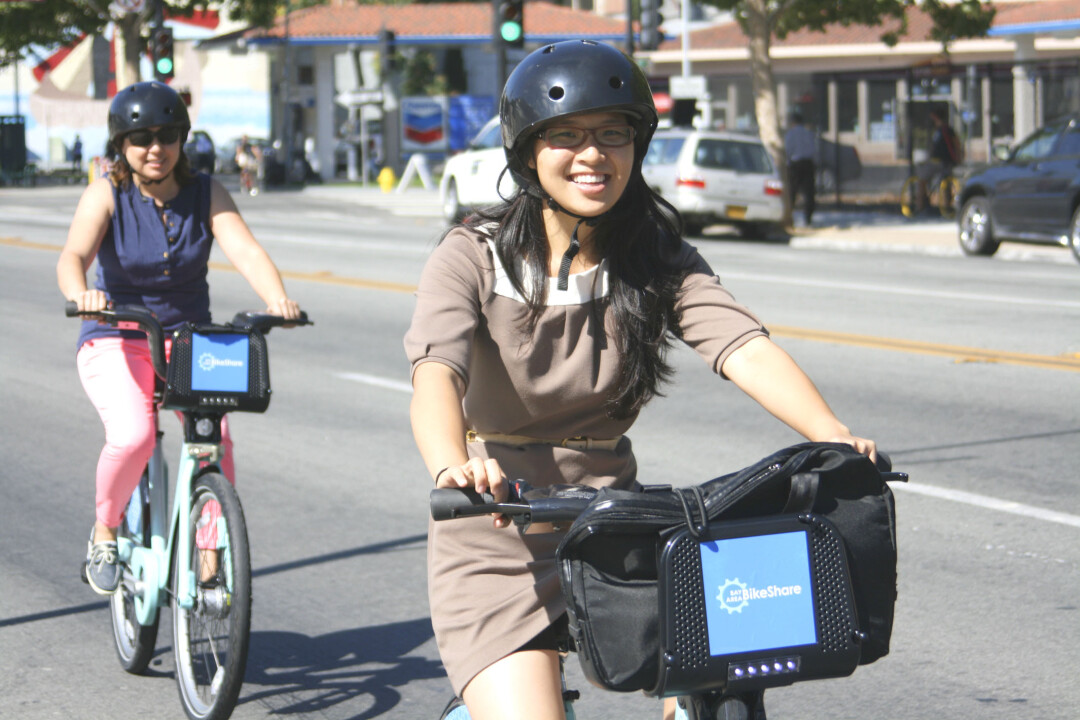Bicycle Advocates Look to Create Eau Claire Bike Share Program

Bicycles boosters in Eau Claire are taking a second look at creating a bike share program to help potential riders pedal the pavement with the swipe of a smartphone. Members of the city’s Bicycle and Pedestrian Advisory Commission have recently met with representatives of two companies that provide bike share services to communities across the country.
With luck, a system that allows people to temporarily rent bicycles in Eau Claire could be up and running sometime in the coming year, says Aaron Salmon, who chairs the BPAC.
“We do have a lot of interest in it, so I’m pretty optimistic about it,” Salmon says.
Bike share programs have sprung up in cities nationwide in recent years, and creating one in Eau Claire has been discussed in the past. In the spring of 2015, a group of UW-Eau Claire students studied the feasibility of a bike share system in Eau Claire. They concluded that such a system would be problematic because most people have cars and those who are inclined to travel by pedal already own bicycles.
However, the bike share industry has changed over the past year and a half, Salmon says. Today, it’s possible to build a system that uses less infrastructure and is therefore less costly and more flexible for a city the size of Eau Claire.
WHAT IS BIKE SHARING?
“Bike sharing is an innovative transportation program, ideal for short distance point-to-point trips providing users the ability to pick up a bicycle at any self-serve bike-station and return it to any other bike station located within the system’s service area.”
Source: Pedestrian and Bicycle Information Center
In recent weeks, representatives from the city and BPAC have met with two companies: Cambridge, Massachusetts-based Zagster and Watertown, Wisconsin-based BCycle. The latter company is affiliated with Wisconsin bike manufacturer Trek, and operates in 43 communities, including Madison and Milwaukee, while Zagster manages bike shares for 135 cities, colleges, and businesses.
Systems such as these are operated via smartphone, allowing users to find a bike in a special rack, receive instructions to unlock it, pay for the service, and get pedaling on a matter of minutes. Bikes are typically picked up from (and returned to) dedicated racks in busy public places. Salmon envisions an Eau Claire system beginning with two to four bike stations, perhaps on the UW-Eau Claire campus, in downtown Eau Claire, and in Phoenix Park.
“This’ll probably be geared more toward students who live downtown and want to get to campus, or tourists or friends who you have in town for the Thursday concert or the farmers market,” he says. Bike share programs can also help solve the so-called “last mile” problem of public transportation: Taking commuters from where they get off mass transit – such as a bus – to their final destination.
Perhaps the best part: With buy-in from sponsors (medical institutions and downtown Business Improvement Districts come to mind) and nonprofits, an Eau Claire-sized bike share system can be built without a cost to taxpayers. “We’re really trying to do this without the city having to spend anything,” Salmon explains.
“One of the big things it did for Chicago is it really elevated the status of bikes on the road in the city.” – Aaron Salmon, Eau Claire Bicycle and Pedestrian Advisory Commission, on his experience with bike share in Chicago
Salmon saw the impact that a bike share program could have while living in Chicago a few years ago. “One of the big things it did for Chicago is it really elevated the status of bikes on the road in the city,” he said. Suddenly, even people who weren’t bike fanatics were riding bicycles in Chicago, which made the sight of bicycles became more common for other road users.
In the near future, Salmon expects to formalize a group – composed of representatives of BPAC, the city, and the university, among others – that will pursue a bike share program. If sponsors can be found, he’s optimistic the effort could begin with a few bike stations sometime in 2017.






















